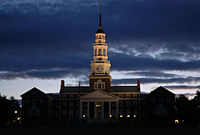
James Madison University is a public research university in Harrisonburg, Virginia. Founded in 1908 as the State Normal and Industrial School for Women at Harrisonburg, the institution was renamed Madison College in 1938 in honor of President James Madison and then James Madison University in 1977. It has since expanded from its origins as a normal school and teacher's college into a comprehensive university. It is situated in the Shenandoah Valley, just west of Massanutten Mountain.

Eastern Michigan University, is a public research university in Ypsilanti, Michigan. Founded in 1849 as the Michigan State Normal School, it was the fourth normal school established in the United States and the first American normal school founded outside New England. In 1899, the Michigan State Normal School became the first normal school in the nation to offer a four-year curriculum and gained the name Michigan State Normal College. In 1959, the college became a university and gained its current name of Eastern Michigan University.
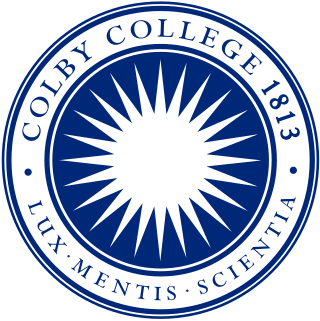
Colby College is a private liberal arts college in Waterville, Maine. Founded in 1813 as the Maine Literary and Theological Institution, it was renamed Waterville College in 1821. The donations of Christian philanthropist Gardner Colby saw the institution renamed again to Colby University before settling on its current title, reflecting its liberal arts college curriculum, in 1899. Approximately 2,000 students from more than 60 countries are enrolled annually. The college offers 54 major fields of study and 30 minors.

Bowdoin College is a private liberal arts college in Brunswick, Maine. When Bowdoin was chartered in 1794, Maine was still a part of the Commonwealth of Massachusetts. The college offers 35 majors and 40 minors, as well as several joint engineering programs with Columbia, Caltech, Dartmouth College, and the University of Maine.
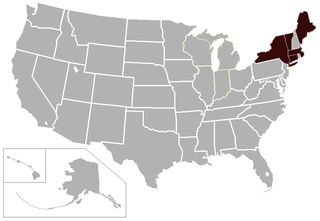
The New England Small College Athletic Conference (NESCAC) is an intercollegiate athletic conference that competes in the National Collegiate Athletic Association (NCAA) Division III comprising sports teams from eleven highly selective liberal arts institutions of higher education in the Northeastern United States. The eleven institutions are Amherst College, Bates College, Bowdoin College, Colby College, Connecticut College, Hamilton College, Middlebury College, Tufts University, Trinity College, Wesleyan University, and Williams College.

Southern Polytechnic State University was a public, co-educational, state university in Marietta, Georgia, United States approximately 20 miles (32 km) northwest of downtown Atlanta. Until 2015, it was an independent part of the University System of Georgia and called itself "Georgia's Technology University."

Bates College is a private liberal arts college in Lewiston, Maine. Anchored by the Historic Quad, the campus of Bates totals 813 acres (329 ha). It maintains 600 acres (240 ha) of nature preserve known as the "Bates-Morse Mountain" near Campbell Island and a coastal center on Atkins Bay.

The University of Maine (UMaine) is a public land-grant research university in Orono, Maine. It was established in 1865 as the land-grant college of Maine and is the flagship university of the University of Maine System. It is classified among "R1: Doctoral Universities – Very high research activity".
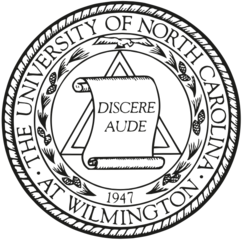
The University of North Carolina Wilmington, or University of North Carolina at Wilmington, is a public research university in Wilmington, North Carolina. It is part of the University of North Carolina system and enrolls 17,499 undergraduate and graduate students each year. It is classified among "R2: Doctoral Universities – High research activity".
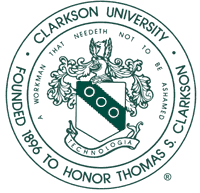
Clarkson University is a private research university with its main campus in Potsdam, New York. Clarkson has additional graduate program and research facilities in the New York Capital District and Beacon, New York. It was founded in 1896 and has an enrollment of about 4,600 students studying toward bachelor's, master's, and doctoral degrees in each of its schools or institutes: the Institute for a Sustainable Environment, the School of Arts & Sciences, the David D. Reh School of Business, the Wallace H. Coulter School of Engineering, and the Earl R. and Barbara D. Lewis School of Health Sciences. The university is classified as an R2 research institution.
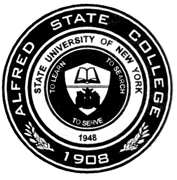
Alfred State College is a public college in Alfred, New York, United States. It is part of the State University of New York (SUNY) system. The college, formerly the Technical College at Alfred, offers bachelor's and associate degree programs. It is accredited by the Middle States Commission on Higher Education and is a member of the Rochester Area Colleges consortium.

Kentucky Wesleyan College (KWC) is a private Methodist college in Owensboro, Kentucky. Fall 2018 enrollment was 830 students.
The Machine, the former Alpha Rho chapter of Theta Nu Epsilon at the University of Alabama, is a coalition of Panhellenic sororities and IFC and NPHC fraternities that formed a secret society with some degree of influence over campus and Alabama state politics. The group, which has operated in varying degrees of secrecy since 1914, is credited with selecting and ensuring the election of candidates for Student Government Association, Homecoming Queen, and other influential on-campus and off-campus offices, including the Student Government Association Senate. It was evidently first publicly noted as "a political machine" in 1928 by Alabama's campus newspaper, The Crimson White. Then in a 1945 article in the newspaper, it was referred to as "the machine", and the name has stuck ever since. It is alleged that The Machine plays a real role in both the politics of the student community and in the political careers of numerous Alabama politicians.
Georgia Southern University–Armstrong Campus, formerly Armstrong State University, is one of three campuses of Georgia Southern University, a public university in the U.S. state of Georgia. Occupying a 268-acre (1.08 km2) area on the residential southside of Savannah, Georgia, the school became one of three campuses of Georgia Southern University in 2018. The university's flagship campus is in Statesboro, 50 miles (80 km) west of Savannah. The Armstrong campus is located approximately 15 miles (24 km) from downtown Savannah and 25 miles (40 km) from Tybee Island. Armstrong offers undergraduate and graduate degrees; it has a total student enrollment of approximately 5,000 students.
The University of Maine at Machias is a satellite campus in Machias, Maine. It is part of the University of Maine System, and it is the only regional degree-granting campus of University of Maine. The institution was founded in 1909 as a normal school for educating teachers, and offers studies in recreation, English, education, social sciences, and physical sciences, including a marine biology program. Enrollment is 760 students.

WMHB, 89.7 FM Waterville, is the non-commercial College radio station of Colby College in Waterville, Maine, United States. WMHB is directed, managed, and staffed entirely by students. WMHB has been on air in one form or another since 1949. WMHB can be heard in Waterville, Winslow, Oakland, Fairfield and surrounding communities as well as on the Internet via its webcast.

The University of Missouri–St. Louis (UMSL) is a public research university in St. Louis, Missouri, United States. Established in 1963, it is the newest of the four universities in the University of Missouri System. Located on the former grounds of Bellerive Country Club, the university's campus stretches into the municipalities of Bellerive, Bel-Nor and Normandy. Additional facilities are located at the former site of Marillac College and at Grand Center, both in St. Louis city.

The Colby Echo, established in 1877, is the weekly student newspaper of Colby College in Waterville, Maine.

The history of Bates College began shortly before Bates College's founding on March 16, 1855, in Lewiston, Maine. The college was founded by Oren Burbank Cheney and Benjamin Bates. Originating as a Free Will Baptist institution, it has since secularized and established a liberal arts curriculum. After the mysterious 1853 burning of Parsonsfield Seminary, Cheney wanted to create another seminary in a more central part of Maine: Lewiston, a then-booming industrial economy. He met with religious and political leaders in Topsham, to discuss the formation of such a school, recruiting much of the college's first trustees, most notably Ebenezer Knowlton. After a well-received speech by Cheney, the group successfully petitioned the Maine State Legislature to establish the Maine State Seminary. At its founding it was the first coeducational college in New England. Soon after it was established, donors stepped forward to finance the seminary, developing the school in an affluent residential district of Lewiston. The college struggled to finance its operations after the financial crisis of 1857, requiring extra capital to remain afloat. Cheney's political activities attracted Benjamin Bates, who was interested in fostering his business interests in Maine. Bates donated installments of tens of thousands of dollars to the college to bring it out of the crisis.

















